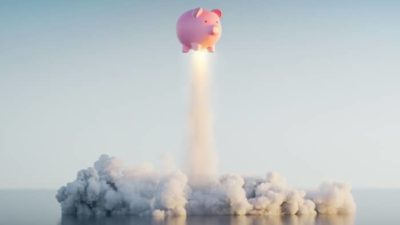This article was originally published on Fool.com. All figures quoted in US dollars unless otherwise stated.
This article was originally published on Fool.com. All figures quoted in US dollars unless otherwise stated.
Berkshire Hathaway (NYSE: BRK.A)(NYSE: BRK.B) joined the exclusive club of trillion-dollar stocks on Wednesday, topping $1 trillion in market cap during the day's trading session and closing above that level at 4 p.m. ET.
In fact, Berkshire is the only U.S. company to reach this milestone that isn't a technology company. Quite the opposite, really -- Berkshire managed to grow to a trillion-dollar valuation with a collection of businesses that many investors consider to be "boring."
With the stock now approximately 40% above its 52-week low, and up by about 135% over the past five years, it might seem as if Berkshire is getting a little too expensive. So, let's take a close look to see if this is indeed the case.
A difficult stock to value
Admittedly, Berkshire is a tough stock to value. Not only is it a collection of more than 60 subsidiary businesses, but it has a massive stock portfolio and a bunch of cash on the balance sheet. These latter two components make the company look deceptively expensive by most valuation metrics.
Plus, thanks to an accounting rule, Berkshire has to include unrealized losses and gains from its stock portfolio in its earnings calculations, essentially rendering the traditional price-to-earnings (P/E) ratio useless. What's more, CEO Warren Buffett himself has gradually placed less emphasis on the company's book value, which had long been his gauge of the business' valuation.
Fortunately, two of the three components are rather easy to assess individually. We'll start with Berkshire's overall market cap, which is almost exactly $1 trillion as of this writing, so we'll use that figure.
First, Berkshire has $277 billion in cash and equivalents on its balance sheet. This gives the company unparalleled financial flexibility to take advantage of opportunities that arise but is generating billions in interest income for Berkshire in the meantime. Backing this out takes the market value down to $723 billion.
Next, Berkshire's stock portfolio has a collective market value of approximately $318 billion. Removing this from the equation shows that the market is valuing Berkshire's operating businesses at $405 billion.
Is Berkshire Hathaway too expensive?
So, we have a business that commands a market value of a little over $400 billion. Over the past four quarters, Berkshire has produced operating earnings of $42.1 billion from its subsidiaries.
This implies that if we back out Berkshire's stock portfolio and cash -- both of which have straightforward market values -- Berkshire's actual businesses are collectively trading for about 9.5 times trailing-12-month earnings.
Even if we back out investment income -- which is included in operating earnings, since the interest on Berkshire's cash technically is mostly held in Berkshire's insurance business -- the company still generated $30.9 billion in profit. This would translate to a price-to-earnings multiple of about 13. And this is for a collection of largely recession-resistant businesses that have grown operating earnings by 26% year over year so far in 2024.
I'm not sure that this would qualify as "expensive" by virtually any definition.
The bottom line is that while Berkshire's stock has performed well over the past year, that doesn't make it an expensive stock. This is still a reasonably priced collection of businesses, assets, and cash, and there's no reason to believe Berkshire cannot continue to deliver strong returns for years to come.
This article was originally published on Fool.com. All figures quoted in US dollars unless otherwise stated.
This article was originally published on Fool.com. All figures quoted in US dollars unless otherwise stated.









